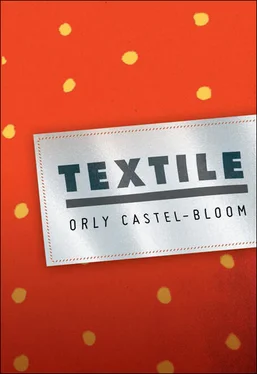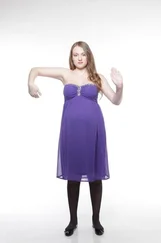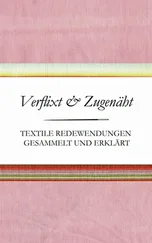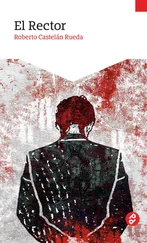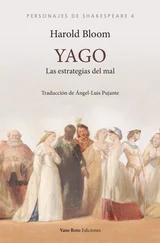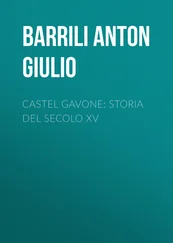“Do you think they’ll get married?”
“I’m sure they will,” said Hagit.
“Do you think I should go there and try to persuade her to come home?”
“I can’t really see the point, Mrs. Segal. I tried everything. Your daughter’s head over heels in love with him. And you know her. There’s nothing anyone can do. Maybe she’ll come to her senses and come home, and maybe not. But I promise you that I’ll come and visit you sometimes,” she said when she spotted a tear in Madeleine’s right eye.
“I haven’t even got the money for a plane ticket. And I don’t want to go there and impose myself on them. Reudor took everything, everything.” Now the tears were streaming down her face.
Hagit stayed in the little apartment on Shimoni Street for another half-hour and ate dried fruits past their sell-by date. She didn’t have anything encouraging to say to Madeleine, and so she promised her again that she would come and visit her once a month. This promise brought no consolation, especially since her daughter’s traveling companion forgot about her promise and failed to keep her word.
MADELEINE SANK into profound melancholy with fits of apathy, and spent the rest of her life watching television, which improved a lot over the years. The number of channels rose from one to two, and then to many, and together with this expansion the interchannel competition increased as well. Madeleine put on a lot of weight, and needless to say, she no longer did any twists or stretches, and standing on her head was obviously out of the question, even against a wall. Her head could no longer bear the weight. Things worked out well for Shoham in Eilat, she completed a course in deep-sea diving, talked all the time about corals and coral reefs, and said that when she had a daughter she would call her Coral. On the rare occasions when she came to visit her mother, she noticed that the thin, supple woman had turned into an overweight couch potato. She tried to talk her into moving to Eilat to be close to her, but she knew there was no chance. She would not move from that couch until her dying day.
AT THE BEGINNING OF THE SIXTIES, STANLEY AND SAMANTHA McPhee, Randall’s parents, came to Ithaca from a little town in Texas, because they wanted to give their children a good, Northern, enlightened education, without the oppressive complexes of the history of the South . They didn’t want their children to grow up with inferiority complexes, and to have to change their southern accent whenever they met anyone from the North and encounter forgiving, patronizing looks.
After years of practice in the prestigious town, Stanley and Samantha succeeded in almost completely effacing their accent, and planned that the next generation, headed by Randall, would bury it forever.
Stanley and Samantha wanted to invest in the northern branch of the McPhee family, and so they wanted five children, including Randall. But the only child born to them was Randall, because six or seven times Samantha miscarried in the third month of her pregnancy.
The doctors in the Woman’s Health Center in Ithaca could not explain why such a healthy woman was unable to bring her pregnancies to term. And the doctors in New York they consulted for a second opinion couldn’t explain it either.
THE FAMILIES OF BOTH Stanley and Samantha McPhee (née Griffith) were members of AHS (American Hibiscus Society), and in Texas where they lived, the members of these families were considered fanatics on the subject. After their day jobs they devoted themselves to breeding improved new strains of the Hibiscus rosa-sinensis , and to inventing other exotic strains, in shades of near-black or pure white, with hearts that changed color three times over the summer.
Stanley and Samantha had met at a big exhibition of new hibiscus strains, and fallen in love.
When they moved to Ithaca, they took with them a few fine rare strains for their large garden, but most of them died in the first frost of November.
Samantha was furious with her new husband for not thinking about it in advance and not setting up a hibiscus hothouse equipped with the heaters and humidifiers required for a tropical plant originating in Hawaii.
In spite of her pregnant state, she carried the big pots containing the surviving bushes into the house, and instructed her husband to set up the above-mentioned hothouse in the big backyard and equip it with everything required.
Setting up the hothouse and operating it cost the couple a fortune, and in order to pay for it and also to earn a living, they opened a florist shop in downtown Ithaca, and next to it a secondhand bookstore. They called the florist shop Some Flowers and the bookstore Book Report. The income from the two stores minus the high costs of the hothouse provided the couple and their son Randall with a good living, but they still felt an inexplicable emptiness.
Accordingly they threw themselves heart and soul into a purpose — Samantha into Randall, and Stanley into the search for a hibiscus unlike anything ever seen before: as blue or black as possible, with a psychedelic heart.
RANDALL MCPHEE KISSED Bahat Segal for the first time among the strange blooms produced by his father Stanley. Two days later Bahat drove her friend Hagit to the Syracuse airport to fly to New York City and from there to Israel. They didn’t speak the whole way.
Randall’s parents weren’t crazy about their only son’s choice and stayed aloof. Bahat wasn’t bothered. After her alternative childhood in Shimoni street in the green suburb of Ramat Aviv, and in San Francisco, she was a girl full of self-confidence and she knew very well how to get along on her own, and she even took a historical masochistic pleasure in the stupid condescension of her Presbyterian mother-in-law.
Her father-in-law, Stanley McPhee, admired Richard Nixon with all his heart and soul, and a portrait of Nixon went on hanging in their home even after the Watergate scandal broke out. Bahat saw that her in-laws were hardcore Republicans, and nevertheless she went to study botany at Cornell University because she thought, who knows, perhaps one day she would succeed in creating new strains of hibiscus, to the delight of Stanley and Samantha, leading to the fall of the interracial barrier that Bahat actually did her best to encourage: she saw it fitting to begin many critical remarks about their thinking and way of life with the words, “We Jews. .”
Bahat did well in her studies, and got into the subject of the hibiscus as if there weren’t any other flowers in the world. Even though she found botany rather boring, she completed her first degree in two years. At the same time exactly, Randall completed his BA in Latin and Italian, and planned to get out of the hibiscus business to set up as a translator of these languages into English.
At the end of these two years, during which she had also worked in the family stores, Bahat switched to zoology, where she found herself far more than in botany because everything was more dynamic and dramatic.
Her master’s she did on arthropods, and her doctorate on the Nephila , weavers of the strongest webs in the world. Her sister Shoham had recovered from her arachnophobia by the time she completed her army service and the two of them corresponded, thus Bahat learned about Shoham’s success as a midwife on the coral reef in Eilat, where she had even developed a new technique.
Two daughters were born to the mixed-race couple Randall and Bahat: the first was called Sara, and the second Ruth — two names which did not clash with either religion or descent, so that the girls wouldn’t have identity problems either in the United States, North or South, or in Israel, if and when they ever decided to go back, even if only on a trip to discover their roots.
Читать дальше
